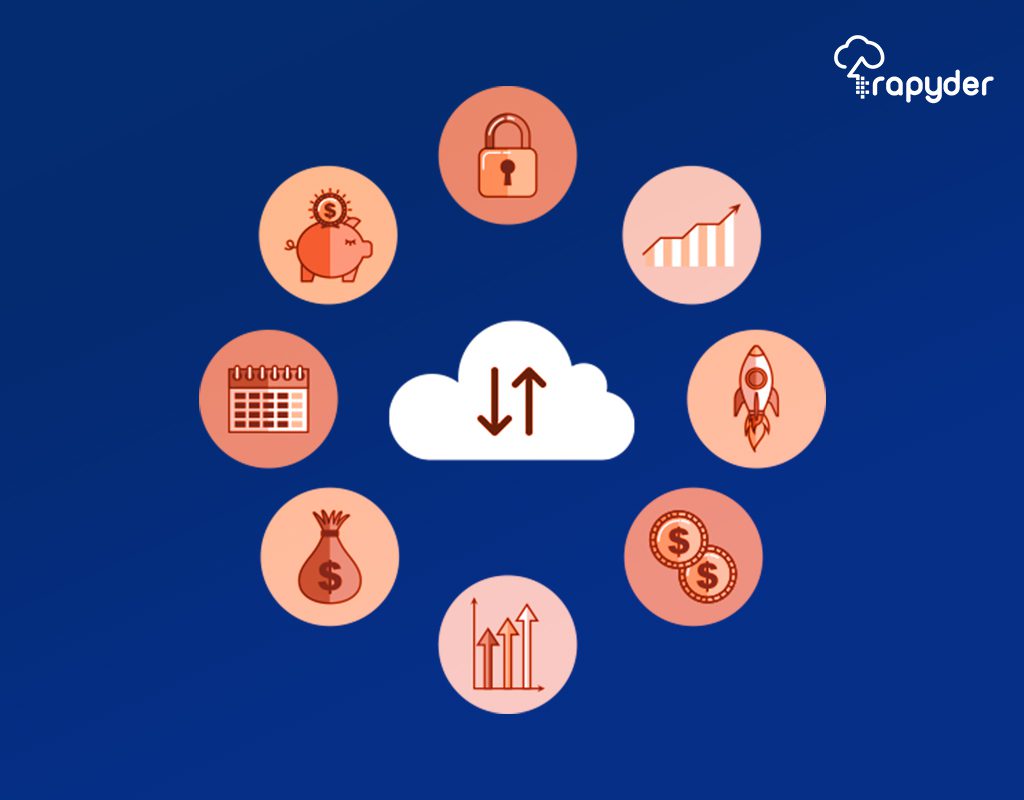What is the FinTech Industry?
“FinTech” refers to new technology that aims to improve and automate the delivery and usage of financial services. At its most basic level, Fintech is used to help organizations, company owners, and individuals better manage their financial operations, procedures, and lives through specialized software and algorithms that run on computers and, increasingly, smartphones. The term “fintech” is a mix of “financial technology” and “financial innovation.”
Concerns about cybersecurity in the fintech business have developed with the industry’s growth. The tremendous global expansion of fintech firms and marketplaces has increased the exposure of weaknesses in fintech infrastructure, making it a target for cybercriminals. Fortunately, technology advances, reducing existing fraud risks and mitigating new ones.
Fact Time: At an annual growth rate of 23.84 percent, the worldwide fintech market is expected to reach $124.3 billion by the end of 2025.
How does FinTech benefit the Cloud?
Cloud computing’s influence on Fintech is undeniable. While adopting cloud technology in fintech services is still in its early stages, the growth potential is enormous. Cloud computing in Fintech is increasing steadily, even though cloud adoption is still in its early phases. Currently, the Cloud hosts 22% of all financial applications. However, this gives a lot of space for expansion and creativity.
Banks may now easily collaborate with fintech firms in the future. Most importantly, start-ups are being built from the ground up to be cloud-native. As more organizations use digital payment systems, demand for fintech solutions will likely rise, propelling market development.
Fintech start-ups and significant financial institutions compete to provide consumers and end-users with faster, more reliable, 24/7 uptime digital goods and services. This is possible with cloud computing, which is both cost-effective and secure in an age where regulatory compliance is growing more severe.
Let’s look at a few benefits that fintech enjoys while on cloud:
- Data Management– The fintech industry relies heavily on data. It is required for many tasks, including routine account administration, user identity verification, balance display, and expenditure analysis. Fintech organizations may use cloud technology to store, manage, and access large amounts of data securely, cost-effectively, and independently from anywhere and at any time.
- Accelerated Innovation– The agility cloud computing has boosted the fintech industry’s innovation provides to the sector. The Covid-19 outbreak posed several hurdles for the fintech industry, which cloud computing has aided financial services organizations in quickly and easily overcoming.
- Improved Scalability & Flexibility– In today’s fast-paced environment, where customer-centric digital banks are gaining substantial market share, acting quickly is vital to staying competitive. Working with the Cloud is an excellent approach to achieving this scalability quickly.
- Enhanced Security– Customers are becoming increasingly mindful of how their data is safeguarded in the age of high-profile data breaches and cyber security threats. The fintech industry is responsible for protecting its client’s data, and the Cloud is helping them do it more effectively.
- Reduced Costs– With Cloud, financial institutions can avoid spending a lot of money on dedicated hardware and software with a short shelf life and on the staff to maintain it. Now a fintech can instead invest in the infrastructure of a secure, specialized cloud service provider and concentrate on growing the business.
Fact Time: According to IDC, India’s Public Cloud Services Market is to Grow at a CAGR of 24.1% by 2025.
What are the major challenges faced by FinTech while adopting to Cloud?
Despite rapid development and many cloud plans in place, cloud adoption in the banking industry remains delayed. Many fintech companies have not upgraded to Cloud and have not realized the value that Cloud brings.
Here are some challenges that fintech companies often face while adopting to cloud:
- Data Privacy and Security– Security is a challenge with any technology, and the Cloud is no exception. Bank data is the most sensitive data; thus, keeping it safe from cyber-attacks is critical for the financial industry. Financial institutions need to safeguard their data. Security methods must change in line with technological advancements. In all domains of cloud computing, organizations must place a strong emphasis on threat and vulnerability detection. Customer data confidentiality must be prioritized when contemplating industry-wide technological change.
- Lost Productivity– Banking and financial organizations seek to get on board with the cloud revolution. However, most businesses lack the experience or financial resources to use cloud technologies. Most banks are still debating whether or not to migrate their old monolithic systems to the Cloud. Organizations that rely on old systems miss out on the productivity benefits of cloud apps. Banks face hours or days of server disruption as they rush to migrate to the Cloud, hurting customers and workers.
- Compliance and Reporting– While banks’ main priorities are data and security, understanding shifting compliance rules and reporting standards should not be disregarded. In this environment, it is evident that banks must address regulatory concerns before using cloud services widely. Regulators are concerned about keeping sensitive data in the Cloud, especially when non-banking firms enter the market. Before deploying any third-party cloud features or partnerships, most financial institutions are encouraged to take a risk-based approach.
- Managing Business Critical Applications– Every financial institution must completely control its important business applications and data. Giving it to a third-party cloud provider could limit the company’s flexibility and agility. Financial institutions and cloud service providers should collaborate to implement cloud computing technologies. As financial services companies grow their use of cloud services, cloud service providers must guarantee that the appropriate structures, plans, and procedures are in place.
What is Rapyder’s role in helping FinTech companies in Cloud?
Rapyder, an AWS Advanced Consulting Partner with competencies in DevOps and Well-Architected Review, offers end-to-end cloud solutions across industry verticals. We are a cloud partner that is agile, precise, innovative, and quick with solutions providing 24*7 support and monitoring for our services.
Rapyder’s team of experienced individuals has helped a few fintech companies transform their cloud experience. We support migrating workloads, achieving significant cost savings, increasing performance efficiency, and building a safer and more secure cloud environment for financial institutions.
Conclusion
From being just another tech word, Cloud has now become a mainstream technology revolutionizing every industry sector, including Fintech. Despite initial worries about security and data protection hovering around the fintech sector, Cloud has proved to be secure when precautions are followed.
Cloud security has recently improved due to zero-trust verification and encrypted data. Cloud computing in Fintech is becoming increasingly popular since it satisfies many of the financial sector’s current needs.
Are you looking to migrate your workloads to Cloud? In need of a consulting partner to sort out your security and cost concerns? Contact us, Rapyder, to know how we can help.




